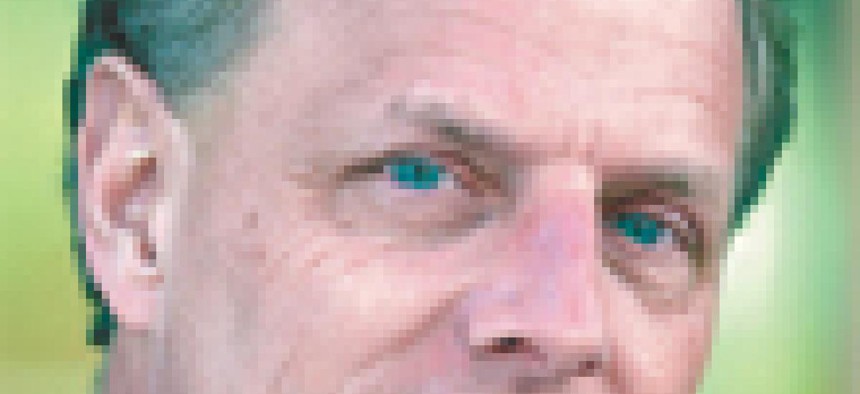Eye on the States: Take advantage of your commercial, federal assets

Every company with a federal or commercial business that wants to expand into the state and local market faces this challenge: how to leverage those business assets into state and local business.
Every company with a federal or commercial business that wants to expand into the state and local market faces this challenge: how to leverage those business assets into state and local business.While the question is obvious, the answer is not.Potential advantage points are often apparent: underlying capabilities, program knowledge, repeatable solutions, customer relationships, scalable infrastructure and sales channels. Each one of these is a plus for a company in the state and local market if it can figure out how to build upon what it's done in other markets. Rarely does a company excel at leveraging multiple assets, but there are those that have had success focusing on one or two.Unisys Corp. and Northrop Grumman Corp. have done well using their underlying technology infrastructures, built for the federal and commercial markets, in the state and local outsourcing market. Microsoft Corp. and Hewlett-Packard Corp. are two of the best at getting maximum ground in this market by capitalizing on their broader channel relationships. Affiliated Computer Services Inc. and EDS Corp. are pros at using their knowledge of federal programs in areas such as health care, transportation and human services to create opportunities. Accenture Ltd., Deloitte & Touche and CGI-AMS have impressive track records for using solution sets, especially financial and human resource systems.Even the best companies struggle with overcoming the single greatest barrier to leverage: their own organizations. Too often, companies run into internal roadblocks and obstacles. While they talk -- sometimes endlessly -- about seamlessly extending their federal and commercial assets into state and local, their organizations' actions often undercut whatever chance they may have had.In these situations, there is often a fatal flaw behind the problem. These companies sometimes believe that because their solutions, infrastructure and other assets can be extended pretty much "as-is" into the state and local market, their organization models can be as well. Unfortunately, as most eventually discover, this just isn't the case.Show me a company that successfully takes its commercial or federal business into the state and local realm, and I'll show you a company that has adapted its practices, processes and structures to this market. Show me a company that has failed at the leverage game, and I'll show you a company that more than likely never figured out the right organizational model and business practices for this market.Dell Inc. has done a superb job making sure that organization rigidity doesn't get in its way. As Dell entered the state and local market, it recognized that the market's competitive and customer realities differed from that of other markets. Within state and local, education and other submarkets require tailored approaches and special allowances.One sure sign of a company struggling with the organization challenges is when the state and local market becomes everyone's favorite organizational ping-pong ball. One year it's part of the commercial organization; the next year it becomes part of the federal unit. Another sign is when top executives continuously compare state and local to the federal and commercial markets, often wishing state and local could be more like them. If only wishing made it so.Commercial and federal organizational structures and models are not readily transferable to state and local without significant modification. If companies are to realize the benefits of asset leverage, they need to stop trying to force a round peg into a square hole. Only then will they be in a position to capitalize on their federal and commercial assets.Thomas Davies is senior vice president at Current Analysis Inc. in Sterling, Va. His e-mail address is tdavies@currentanalysis.com.


Thomas Davies
NEXT STORY: Governments eye slight spending increases